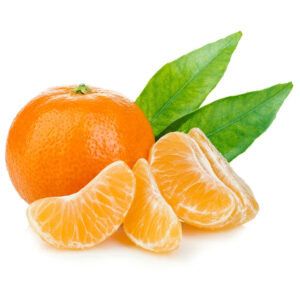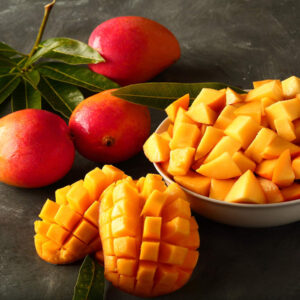Oranges Navel
Oranges Navel
Navel oranges are one of the healthiest fruits you can eat, filled with Vitamin C, fiber, potassium and low in calories. Consuming navel oranges more often may protect against heart disease, cancer and diabetes while also helping to improve memory, blood pressure, immune system and overall health. A typical navel orange contains 69 calories, 17.5g of carbohydrates, 3.1g of fiber, 1.3g of protein and less than 0.2g of fat and 0g of sodium
November – February
Description
1. High in Vitamin C: The Vitamin C in navel oranges is a powerful antioxidant necessary for a healthy immune system. It also protects damaging free radicals, helping to prevent heart disease and cancers. Vitamin C is also required for the formation of collagen and is very important for a steady metabolism and hydration.
2. Source of Fiber: Navel oranges are a good source of fiber (between 2.5g and 4g of fiber per fruit). Because navels are larger, they typically have the larger range of fiber content, helping to improve cholesterol, which also helps to control diabetes. Maintaining a diet high in fiber improves overall digestion and makes you feel fuller longer.
3. Folate: Red Navel Oranges from also provide folate, essential for preventing certain birth defects. When peeling a navel orange, leave on the white stringy parts (called pith) if you can. They contain pectin, a soluble fiber that can even help to lower cholesterol.
4. Beta-carotene: Beta-carotene, responsible for the orange color of navels, is another antioxidant that can prevent and repair cell damage.
5. Vitamin A: Navel oranges are a good source of Vitamin A, which is important for promoting vision and maintaining healthy skin, bones and teeth.
6. Potassium: Navels contain almost 10 percent of the nutrient’s daily value of potassium, which can help to both prevent and treat hypertension and stroke.
7. Calcium: Navel oranges contain calcium, which promotes strong, healthy bones. If you eat navel oranges often, you may not need to take extra calcium supplements.
8. Healing Phytonutrients: The most important flavanone in navel oranges is hesperidin, which has anti-inflammatory properties and can also promote lower blood pressure.
9. Citrates: Navel oranges from are a good source of citric acid and citrates, which have been said to help prevent kidney stone formation. If you have recurring kidney stones or want to avoid them, buy and eat navels more often.
10. Vitamin B6: navel oranges are a good source of Vitamin B6, which helps to promote a healthy nervous system. Deficiencies in Vitamin B6 can lead to depression and sleep disorders.





